- Home
- Daphne Du Maurier
Julius Page 10
Julius Read online
Page 10
Nanette laughed and fumbled for a sweet; she did not believe a word of it.
‘You’re a fine fellow, no doubt,’ she said, ‘but it’s time you were in bed! What do we look like if Monsieur le Rabbin comes over to fetch you?’
Julius wriggled impatiently.
‘Moïse Metzger is in bed and asleep,’ he protested. ‘Nobody is coming to fetch me.’
He settled himself more comfortably and laid his head against her shoulder. Nanette was lovely all over. She had a rich smell.
‘Let me stay, Nounounne,’ he pleaded.
She grunted lazily, pushing away his hands. ‘No, baby, go home.’
‘Please, please, Nounounne, I want to so badly, like last time, you remember.’
‘Oh! You’re a pest, aren’t you?’
‘No, I’m not. I’m a man, I’m fifteen.’
He clung to her, blotting himself against her, burying his face in her warm flesh. She caressed him gently, feeling his narrow hips, his hard thighs.
‘You’re a bad boy,’ she said.
He bit her ear, murmuring nonsense; he rubbed his cheek next hers and tugged at her hands, whimpering impatiently like a spoilt, greedy puppy.
‘Please, Nounounne,’ he begged.
‘Go on, then,’ she said. And she blew out the candle and crossed the room to close the shutters.
Julius was growing up. Already at sixteen he was as tall as the Rabbin, Moïse Metzger; he shaved every morning, he smoked innumerable cigarettes - he thought himself a fine fellow. Daily the Rabbin perceived that his pupil was getting beyond him: this boy would never be a minister in the Temple, he was made for the business of life itself, for gain, for success, for men and for women.
Julius would sit now in the reading-room with his legs crossed and a smile on his face, not even troubling to hold his book before him, but the smile on his face said, ‘I know all this and more. Why am I wasting my time on you?’ The Rabbin would wonder, watching the curving nose, the thin lips, the black eyes set in the pallid face, and he thought, ‘To what end? Where is he going? What will he make of his life?’ Sometimes he would bring himself to ask Julius what his plans were for the future. ‘Have you decided? Are you always willing to become a minister of God?’ But Julius would put him off, would frown and bite his fingers. ‘I’m only sixteen - there’s time enough, isn’t there?’ And to see him in attendance at the Temple, his silence, his attitude of worship, his utter denial of the world when in the presence of God, the Rabbin would be puzzled once again, would stroke his beard in bewilderment. Does he mean it; is it only his youth that makes him arrogant and rebellious? Perhaps his brilliance and his insolence were part of his business of adolescence. He would grow out of them into a sound wisdom, a wisdom that rejected life for the service of the Temple. To see him at prayer, he could not be anything but a student in preparation for the ministry, this boy with his hands folded over his book, his head low, his lips murmuring the soft Hebrew words as he swayed backwards and forwards in a strange ecstasy, and he would offer nothing but worship in this atmosphere of peace and restraint as though nothing would ever exist but the vision of the iron gates, and the golden candlestick, and the Rabbin himself chanting the Kadisch. ‘That is the real Julius, there, standing at prayer,’ said Moïse Metzger, and in his ardour he would cry out to God to look down upon this young servant Julius, to hold him, to cherish him; and when the service was over after sundown he would see the boy sitting at his table with his books around him, his face eager, intent, and ‘That is the real Julius, too,’ he would say.
But later, much later, when darkness had come and the moon had risen, the table would be lonely and the books scattered, and there would be the window open wide filling the silent room with the scent of moss and eucalyptus, and the Rabbin in his narrow bed sleeping the sleep of God’s chosen people, would be unaware of the significance of that empty room and that open window; would neither waking nor sleeping have any knowledge of Julius, his real Julius, swinging his legs over the ledge and dropping to the ground below, nor the hasty flight across the dark street, nor the thrown pebble and the candle flickering behind the shutters, nor the lazy tread of Nanette the blanchisseuse as she unfastened the latch and stood for a moment, her arm upraised, black and mysterious, outlined against the sky. Nor would the Rabbin recognise his real Julius in the boy who lost himself in the night, who forgot the world as well as the Temple, who cared little for profit and less for dreams, and whose secret city was surely to be found in this furious intimacy, this building and breaking of power, this victory that was no victory but a sharp death, poisonous and strong.
There was the Julius who, curling like a child at its mother’s side, slept with his cheek in the curve of her back and did not dream at all; and a Julius who woke when the sun shone, making patterns through the chink of the shutters, who sat up in bed and demanded sweetmeats, who laughed at nothing because he was young and healthy, pulling on his clothes anyhow, who slipped from the window and back to the house of the Rabbin before the old servant had put one foot to the ground and rubbed the sleep from his eyes.
A different Julius, he who sat in the little low room of Oudà the cobbler, who weighed a packet of hashish in his hands, who leant forward and said, ‘Yes, but look here - this packet only goes to someone who can give useful information. I’m tired of Ahèmed’s carpets on which one cannot make more than ten per cent. Something new, my friend - something new.’
And Oudà, his beady eyes gleaming, his skinny hands plucking at the packet: ‘Try Ab Azra in the Rue du Bac; he’s a receiver of stolen goods, and his brother Menkir runs a vessel along the coast. But I tell you, I know nothing.’
Julius in a little café on the quays, with a swinging lamp above his head, a half-caste Arab merchant listening to him, fingering his greasy nose with his thumb, nodding his head: ‘Yes, I can get rid of that for you. I can give you two louis for those ear-rings, no more; it would not be worth the risk,’ and the boy whistling scornfully, sticking his hands in his pockets.
‘I could get double the price up in Mustapha. I tell you I am giving nothing away.’ Then the pretended consultation, the nods, the whispers, the two fat Arab brothers muttering together, the final ‘Very well, we will give you the four louis,’ and the passing of the ear-rings, the chink of coins, Julius tying his canvas bag round his waist, ordering a couple more drinks, and swinging out of the café, rolling a cigarette between his fingers. The hot night, the sound of the sea upon the distant shore, and a little half-caste urchin brushing against his knee begging for a sou. ‘When I was his age I sold in the market,’ thought Julius, and he flung ten centimes to the child, and went on his way that led from the sea and the port to the narrow winding streets and the terraces and the tall houses built against the hill.
And later, Julius leant against the window of Oudà the cobbler, who lifted his head and said, ‘Why don’t you leave Alger and shake the dust from your feet? Why do you linger with Moïse Metzger if you wish to be free?’ Julius would reply: ‘Moïse Metzger thinks I’m going to be a Rabbin, and meanwhile he clothes me and feeds me, and gives me his brain, and there is nothing to pay.’ And, ‘Tell me,’ he went on, ‘which is the most prosperous country in the world?’
Oudà smiled and laid a finger against his nose. ‘You will do well anywhere,’ he said, ‘but England is a rich country. Besides, they are a nation of fools.’
‘Is English difficult to learn?’
‘How should I know? Go to the pastor up in Mustapha and pull him a story.’
‘If I set my mind to it I can learn a language in six months.’
So Julius went to the house of Martin Fletcher, the English pastor, who lived in Alger because of his asthma, and when the middle-aged clergyman perceived a tall, pale boy with dust on his shoes knocking at his door he took pity on him because of his soft voice and his humility, and because he was forcibly reminded of somebody he had imagined long forgotten and buried in the past; and Martin Fletcher thought with a
pang of that reading party à deux in Greece and the sun setting behind the hills of Athens, these pictures helping most forcibly the cause of Julius Lévy, who would learn the English language without paying for his lessons.
‘And so you work in a draper’s shop and you have no one to care for you, no one at all?’ asked Martin Fletcher gently, without listening for the reply but searching in his mind the verses of Keats, who painted so subtly the charms of the sleeping Endymion. And, ‘No, sir,’ said Julius. ‘Since my mother died I am entirely alone; the only things in the world are my books,’ in a flash sizing up his man and turning a conscious profile to the window, drooping a little, as one who is troubled æsthetically and will never know maturity.
Then silence, and Julius sighing somewhat to deepen the atmosphere, and fingering the cover of a book as though he loved the very texture, a lock of hair falling most appropriately over his forehead, until Martin Fletcher moved in his chair, exquisitely disturbed, and went and laid a hand upon his shoulder and said: ‘I am free from five to nine every evening if you are really anxious to learn English ...’
‘Oudà said they were a nation of fools,’ thought Julius. ‘Is it always going to be as easy as this?’ But aloud: ‘If only there was some way I could show my gratitude,’ and taking his hand and kissing it in grave humility, playing the boy, the starved genius.
It would mean four hours every evening in new company, four hours’ extra study instead of roaming the streets and the cafés, but then it was useless to dream of the most prosperous country in the world unless the language became like second nature.
‘You say you have had no education - do you know I can scarcely believe it?’ Martin Fletcher smiled after the first lesson. ‘It’s quite extraordinary, this thirst for learning: you might have trained your brain for years. It is astonishingly receptive, intuitive, the way you grasp the very essence of my teaching.’
And Julius, thinking to himself: you couldn’t sell produce for profit when you were ten and remain ignorant, nor sap the brain of Moïse Metzger for five years without getting somewhere, would reply softly, a little sadly: ‘My mother and I used to read together in the evenings.’
Martin Fletcher, watching the expression in his eyes, the imagined shadow, ‘Poor Julius, how you must have suffered,’ and getting away from the lesson to the interest of an intimate conversation, the light dwindling in the room, so that it might almost be twenty-five years ago in St John’s.
‘You remind me of a very dear friend ...’
‘Do I?’ said Julius, caring not at all, and hearing with impatience the sound of the clock striking the half-hour, and seeing the time of his lesson slipping away - a good thing it cost no money or he would not be having his full value. ‘By the way, I wrote that page of translation; would you correct the faults? I did it without a dictionary,’ but careful to hide his impatience, to smile shyly as behoved the character he was playing, and to add, ‘You make me want to work - it’s as though you understood.’
And when it came to studying there was no pretence, for Julius was thirsty for knowledge as Fletcher had said, and he gave his whole mind to this learning of English, sparing no pains to perfect the grammar and the accent, already in his mind seeing the vision of England - the nation of fools.
‘I should like to show you my England,’ said Martin Fletcher, once more going off in the thread of his own thoughts, dipping his pen in red ink, the page of translation waiting to be corrected. ‘I should like to show you Cambridge, and the Backs, and evensong in Kings - if it wasn’t for my wretched health, exiled here in Algiers. Julius, you more than anyone would appreciate the quiet beauty - none of this flamboyancy, these purple flowers, this exotic sky, but the grey shadows after the sun has set and the clear air.’
‘Yes.’ But Julius had bought a geography book, and Cambridge was only marked as a small town; if one wanted to make money one went to London. ‘Yes, sir, it would be wonderful if we could go together.’
‘Of course you are young, absurdly young. Only seventeen, aren’t you? I was very much like you at your age, innocent, appallingly sensitive. You mustn’t get hurt, you know - you mustn’t spoil yourself.You know what I mean, don’t you? There are so many temptations, especially in this country.’
‘He’s mad, of course,’ thought Julius, but he turned a trusting face with wide-open eyes and he said, ‘I can’t bear anything ugly,’ striking instinctively the right note so that Fletcher should keep his image of the pure Endymion.
‘We won’t do any more work to-night, Julius; you look pale - you must go to bed. Sure you are not lonely in those wretched lodgings?’
‘No, sir - it’s all right. I shall read a little and think about you. You help me so much.’
‘Nonsense - I have done nothing. To-morrow, then. Sleep well.’ ‘Good night, sir.’ Not to a lonely bed and a dream of evensong at Kings, side by side with the Reverend Fletcher, but to throw a pebble at closed shutters and swing his legs over the sill. ‘Oh! Nounounne, my lovely, what price four hours hand-in-hand with a grey-haired English pastor - haven’t you got anything for me? I’ve the devil of a thirst, but it isn’t a drink I’m wanting.’
‘You’ve got to go in, baby, I’ve someone coming along at ten.’
‘The devil you have. Nounounne, tell your fellow to come another night.’
‘Yes, that’s likely, that’s very fine. And d’you expect Nanette to go on washing shirts all her life? Scrub - scrub - whoof ! the heat over a basin and the soapy, sticky water. Ya - I’ll show you some dirty linen, if you like. Make you sick.’
‘How much’ll he give you, your fellow?’
‘Fifteen - twenty - twenty-five francs, I dunno.’
‘That’s a hell of a lot, Nounounne. They only ask you ten in the Rue Maroc. I’ve never paid more, and there’s dancing there too, thrown in.’
‘Go on, liar, eat your words.’
‘Well, anyway, I’m not going for half an hour. That’s a settled thing.’
‘What are you going to do, baby?’
‘I’ll show you.’
‘Now, I tell you I don’t see why I should spoil you as I do. What’ll you say if I ask for fifteen francs?’
‘I wouldn’t pay it.’
‘Wouldn’t you, robber, hyena?’
‘No - you’re my own Nounounne and you love spoiling me. Get up out of that chair, you lazy old bitch.’
England did not matter, nor the lesson that must be learnt before daylight, nor the Rabbin, Moïse Metzger, waiting in the dim sanctity of the reading-room, nor the little cross given him that day by Martin Fletcher, ‘making a bond between us, Julius’ (which surely was eighteen-carat gold and could be sold to old Benjamin Ulmann the jeweller in the Rue Camben for a good price), nor the life that was to come, London, profit, something for nothing - something for nothing, nor anything at all beyond this moment that was Alger, the warmth, the flesh, the scent and the darkness; losing himself in Nanette who was Alger, who was the amber smell and the dust, the white houses, the twisted streets, the throbbing of a drum - who was not even the whole of these things but something which was gone, the hot breath and the dizzy lights of the Foire de Neuilly, the eyes of Jean Blançard, blue and hazy from drink, and the body of Mère curling towards him in her sleep, her hand about his thighs.
The time came when Julius thought of very little else but his plan of leaving Alger and going to England. It seemed to him that he had grown beyond this life he was leading, it held no longer any element of excitement or interest; he had had what he wanted out of Alger.
His tricks of swindling, of dealing in secrecy, his adventures, his scrappy love affairs, they were all boys’ games and he did not feel like a boy any more. He knew he was spoilt, things had been made too soft for him. It was easy to make money in his own little way, to get the better of a carpet dealer, to sell a stolen article for double its value. There was not any fighting in that sort of business, he had only to undertake something and it happened as he wished. He knew
now about the hot sun and the dusty streets, the smell of an Arab market and the cries of the people; he knew about amber and leather and silks and cooked rice; he knew the jingling bangles and the scarlet-painted heels of the dancing girls. He wanted to get away from all this now that it had been absorbed by him and drunken and digested; he wanted different things, a new life, and other men and other women.
Yes, he had had what he needed out of Alger. There was no more to be gained from the mind of Moïse Metzger.
Martin Fletcher was pompous, was a fool; he lived in a world that had no existence beyond his own imagination. He was only good for teaching English.
What was Oudà now but a crippled cobbler who lived for hashish, who was not even intelligent?
And the group of boys who had been his companions, Marcel was a Spahi posted down in the Sahara somewhere, Toto helped his father the coiffeur. Boru was a porter, Pierre served in a restaurant.They were dull and unenterprising with scrubby chins and vacant minds; they would not get anywhere.
Even Nanette, what was she but a lazy negress prostitute, who sucked sweets all day and yawned over her wash-tub? She was only good for one thing, anyway. It was hopeless to talk to her: she laughed and yawned; besides, she was getting too fat.
There was but one person in the whole of Alger who mattered at all, and she was scarcely more than a child, but she listened with wide eyes and open mouth of wonder when she was spoken to; she was quick, too, in her way; she wasn’t a fool, she understood things. Julius paid ten francs for Elsa when he went to the house of Ahèmed. He did not care for any of the other girls. She said she would go with him for nothing, but Ahèmed would not allow this. He had to make his house pay. Elsa was getting old: she was nearly fourteen. In a way she was better than Nanette, because she told Julius he was the most wonderful person in the world. She made him feel important; she was willing and eager to please.

 Jamaica Inn
Jamaica Inn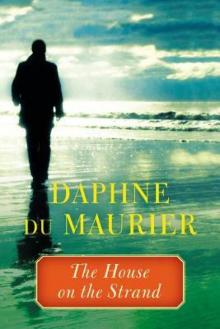 The House on the Strand
The House on the Strand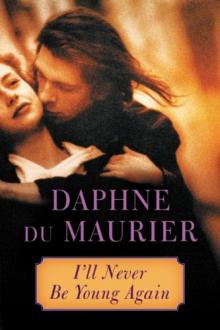 I'll Never Be Young Again
I'll Never Be Young Again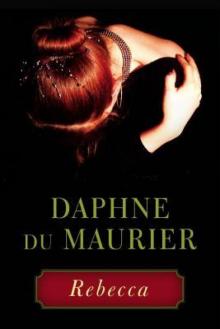 Rebecca
Rebecca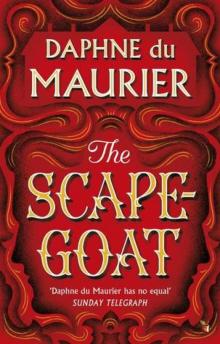 The Scapegoat
The Scapegoat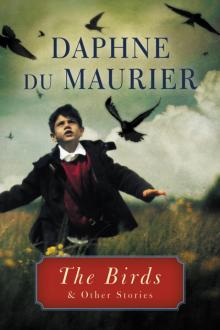 The Birds and Other Stories
The Birds and Other Stories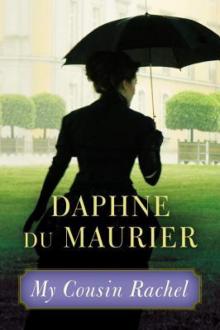 My Cousin Rachel
My Cousin Rachel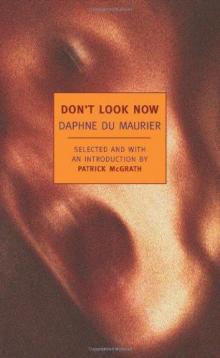 Don't Look Now
Don't Look Now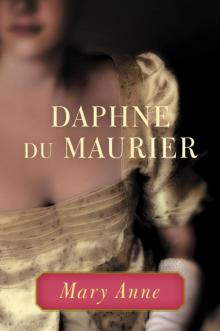 Mary Anne
Mary Anne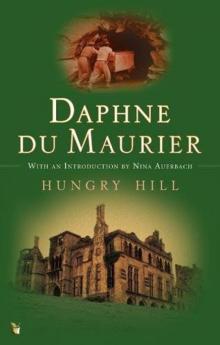 Hungry Hill
Hungry Hill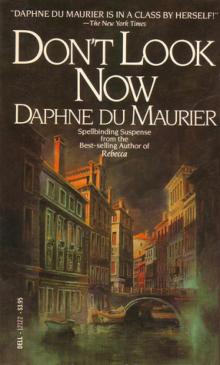 Don't Look Now and Other Stories
Don't Look Now and Other Stories The Loving Spirit
The Loving Spirit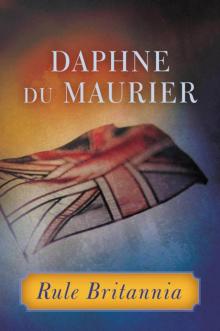 Rule Britannia
Rule Britannia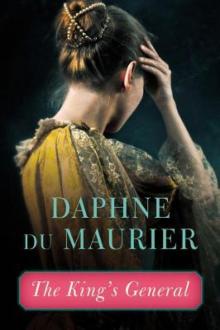 The King's General
The King's General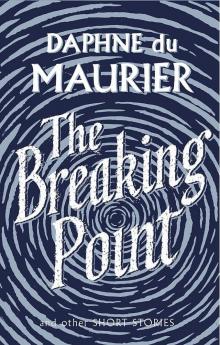 The Breaking Point: Short Stories
The Breaking Point: Short Stories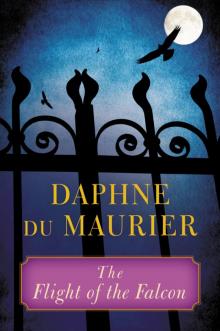 The Flight of the Falcon
The Flight of the Falcon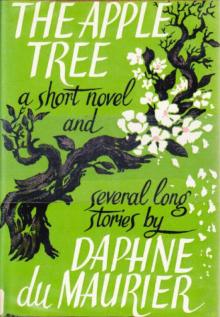 The Apple Tree: a short novel & several long stories
The Apple Tree: a short novel & several long stories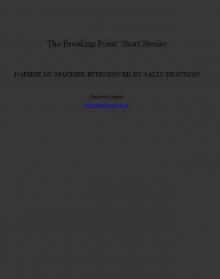 The Breaking Point
The Breaking Point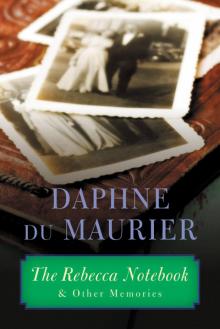 The Rebecca Notebook
The Rebecca Notebook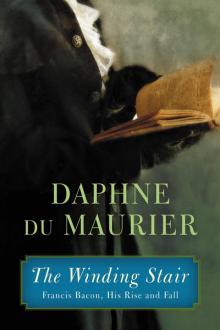 The Winding Stair: Francis Bacon, His Rise and Fall
The Winding Stair: Francis Bacon, His Rise and Fall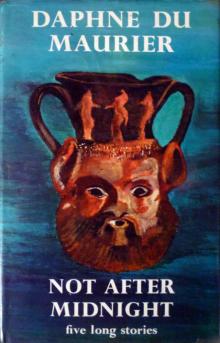 Not After Midnight & Other Stories
Not After Midnight & Other Stories The Doll
The Doll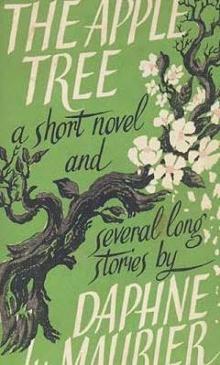 The Apple Tree
The Apple Tree